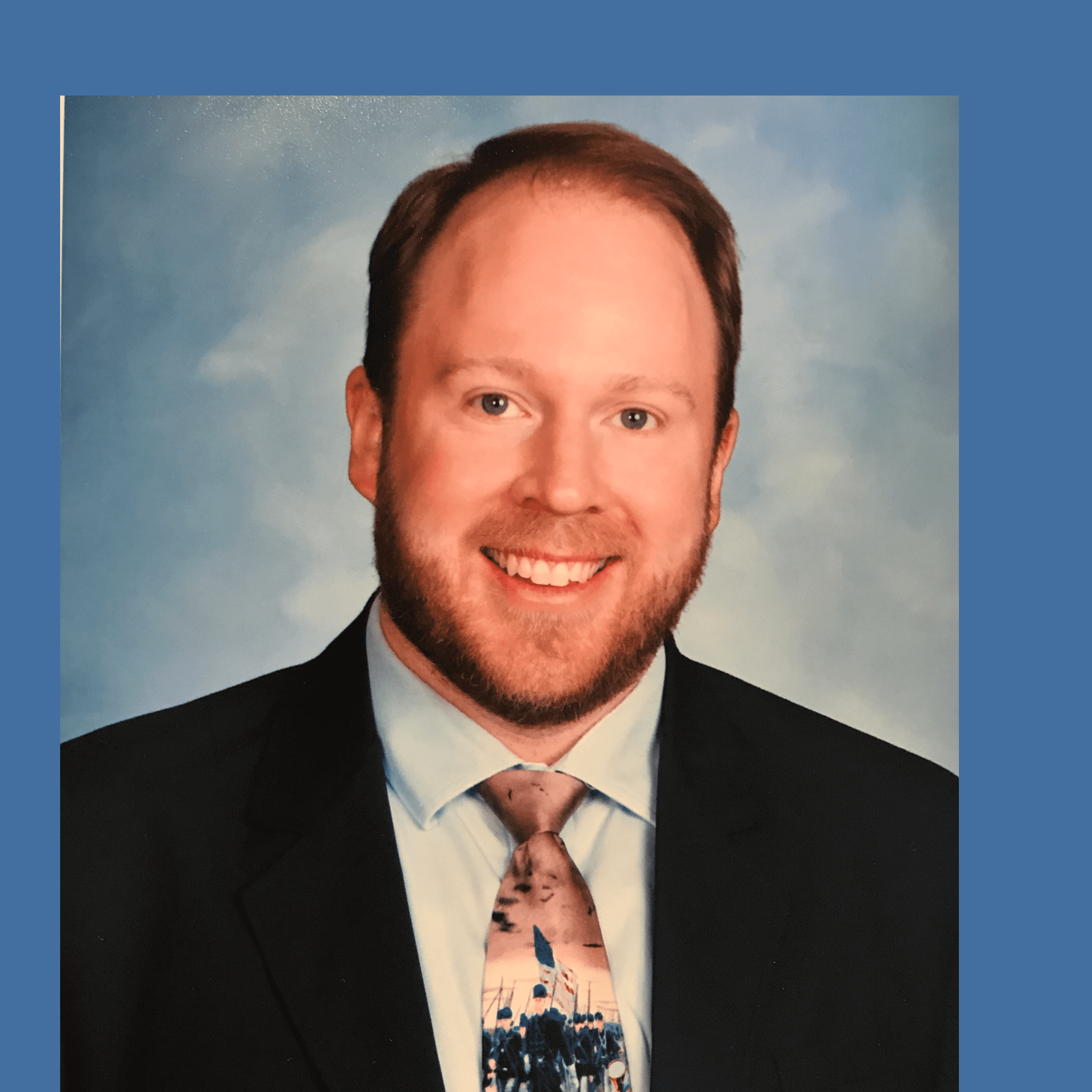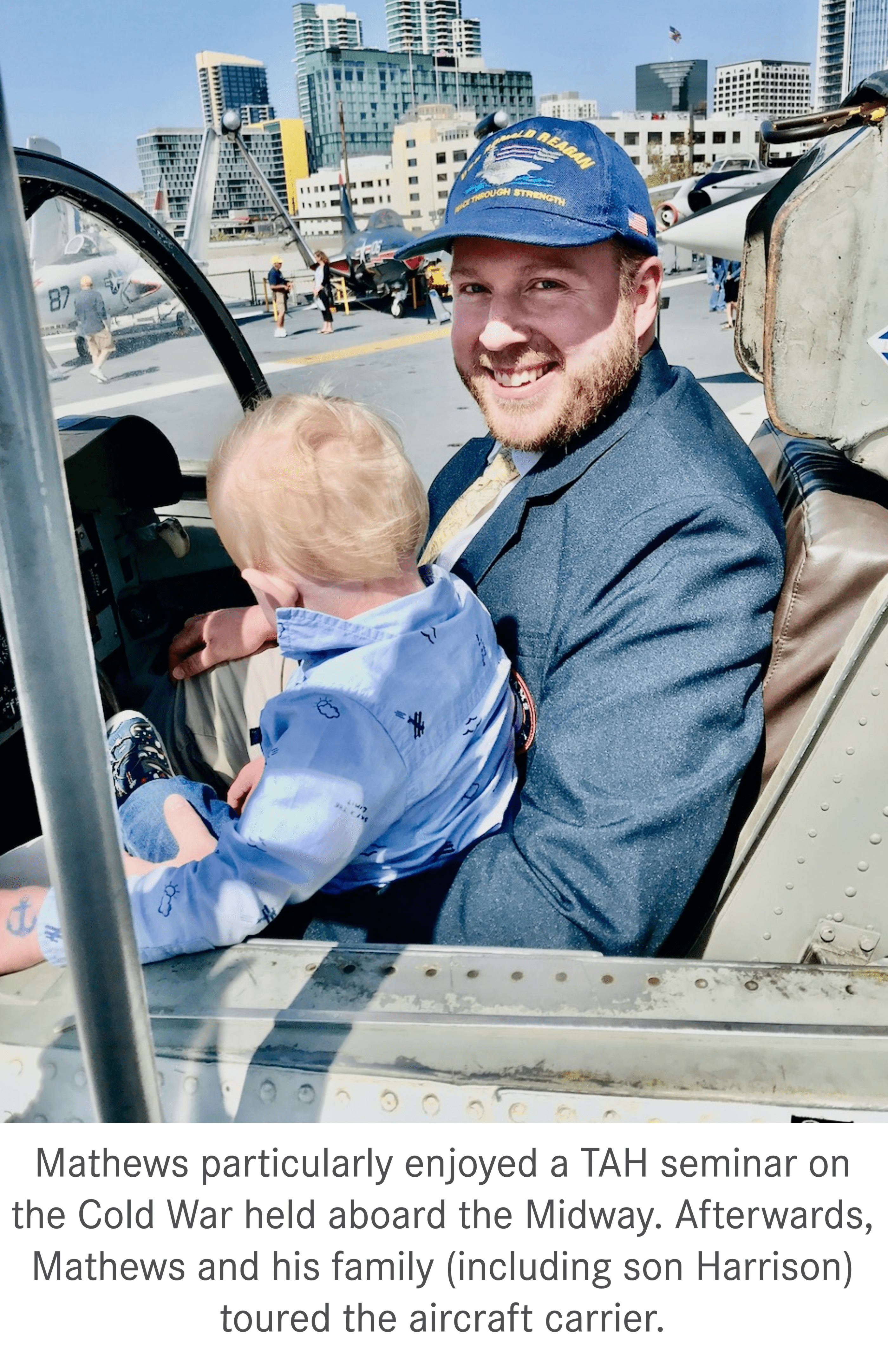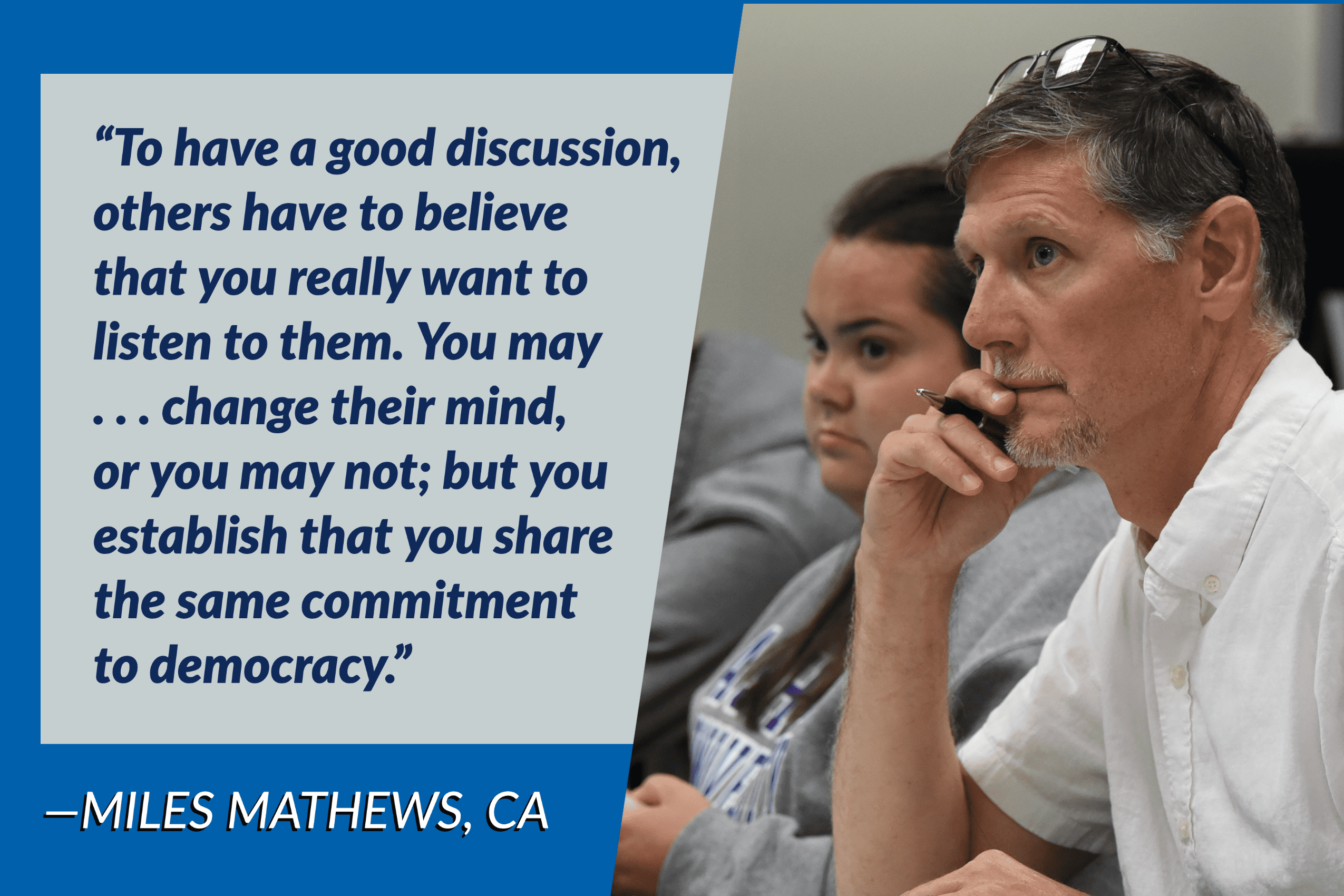Meet Our Teachers
Miles Mathews

Miles Mathews teaches 11th grade US history at the John Adams Academy (JAA), a public charter school in Roseville, California. The school offers a “classical leadership education” centered around reading the enduring literature of the past. For Mathews, now in his sixth year at the academy, his teaching position offers the “depth” he hoped for while earning a Master’s degree in 19th century American history. “I landed on the golden job,” he said. The academy emphasizes “reading, writing and discussion” as the practices through which students best learn “how to think,” not “what to think or when to think.”
 “We don’t use textbooks at JAA. We use classic works of literature and, in history, a lot of primary source documents. Teaching American History has given me tons of good stuff to work with.
“We don’t use textbooks at JAA. We use classic works of literature and, in history, a lot of primary source documents. Teaching American History has given me tons of good stuff to work with.
“I’ve been using the Core Document Collection for about three years, since I first met [TAH Teacher Program Manager] Jeremy Gypton.” Mathews regularly asks Gypton for updates on new volumes available in the series. “I’m using the TAH documents now more than ever,” he said. “They work really well with the distanced learning we’re now doing” during the pandemic. “You can still hold really good Socratic discussions once you get past the barrier of the Zoom platform itself.
“Last year I downloaded a pdf version of the World War II collection to use in class; those documents fit very well with our curriculum. This year I’m using all but four chapters of both volumes of Documents and Debates in American History.” The set spans key themes in American history from 1493 to the present. Each chapter groups document excerpts representing contrasting points of view on a single question. This helps Mathews stage conversations “among students in my classes, and with the authors of the documents,” as well.
Looking from the Past to the Present—Then Refocusing on the Past
As Mathews prepared to lead a discussion of Volume 1, Chapter 7: “The Debate over Ratification” (of the Constitution), he reflected on recent demonstrations in Portland, Oregon, over police operations leading to the deaths of unarmed suspects. The protests against police violence themselves grew violent, demonstrating a worrying potential of passionately aroused political opinion. “Going through Federalist 10, I’m noting what Madison says about the passions of faction. . . . This is not something new; it is the very stuff that the founders worried about.”
Mathews did not plan to draw that connection himself. He had already pointed toward the problem by presenting Lincoln’s Lyceum Speech as the first reading of the school year. “I asked, ‘why does mob rule threaten free government? Why was Lincoln so worried about it?’ A couple of kids said, ‘Hey, this is like what’s happening in Portland.’ I let them talk about that for a few minutes, then drew them back to 1838.” The JAA mission statement states that students who read classic texts learn to “make connections between past events and the expanse of current information.” Indeed, history study most benefits us when it yields guidance for the present. Yet when discussions shift too quickly from the written texts under study toward the contemporary parallel, students skip the necessary work of analyzing authors’ arguments. Instead of learning something new from a writer of the past, students simply reiterate what they already think about the current news.
Moreover, when discussion strays into current politics, teachers are tempted to intrude their own opinions. “I’ve been a student in classes like that. It shuts down debate,” Mathews said.
Letting the Documents Speak for Themselves
Having participated in several Teaching American History seminars, Mathews notes that the professors who facilitate them are “really good at letting the documents speak for themselves. When you are part of such a discussion, you see how you should run one. You learn how to formulate questions” that help students unlock what the documents can teach. At the same time, Mathews loves TAH seminars because they allow him to fully explore his own ideas, a freedom he can’t indulge in front of students.
Such restraint can be difficult for teachers, Mathews says, because, as skilled classroom managers who have academic content to cover, “we like to control things.” For one thing, history teachers must cover the events that gave rise to great speeches, essays, and memoirs. While Mathews is happy to work without a textbook, avoiding the artificially simplified, often slanted accounts found in them, he needs some way of telling the story of the past.
When he began, he used power point presentations early each week to supply the historical background of documents. “Midway through my second year I realized I was just putting the kids to sleep. When you use power points, you’re just giving the kids what they need to know one click at a time. They’re not listening to you; they are just writing down what they see on the slide. My wife said, ‘Why not just lecture?’” Mathews took her advice. Lecturing, while noting important points on the whiteboard, caused his students to listen more intently. “They would copy whatever I wrote on the board, but when I stopped writing, they’d have to listen to me to get it.” He developed a weekly routine of lecturing, then asking students to read and carefully annotate one or more primary documents, then holding an end-of-week discussion.
This fall, Mathews changed his approach again by postponing the lecture. Chapters in Documents and Debates open with concise introductions that provide enough historical background to orient students as they read. During the distanced learning brought by the pandemic, Mathews forgoes asking students to annotate, since he cannot easily collect and review students’ hand-marked copies of document print-outs. Instead, he asks students to write “reading responses” that include quotations of what they feel to be the writer’s most significant observations. Then he leads discussions of the texts. “It’s fun to see what parts of a text they pull out, what they think matters. They’re a lot more likely to remember Jefferson’s letter to Madison urging adoption of a bill of rights if they find the passages that speak to them most. Jefferson becomes real to them.”
Postponing the historical lecture causes students to more carefully examine an author’s argument. “They don’t have Mr. Mathews in their heads,” giving them an historical account that might limit the meaning they find. After the discussion, the lecture prompts them to think through the primary document once more, in the context of the problems the author tried to solve as he wrote.
Recognizing Complexity and Contingency
As a history teacher in a classical academy, Mathews must balance two goals: helping students find the wisdom an author may offer, and helping them grasp the historical contingencies that limited the author’s vision. Mathews paraphrased a comment on history he once read on a museum wall: “We can’t understand history by blindly loving it or blindly condemning it. We must assume that, to those who lived in the past, their world was as complex as our world is to us.” He continued, “Was Jefferson, the slaveholder who wrote ‘all men are created equal,’ a hypocrite? Of course he was. But when you read the selection from Notes on the State of Virginia in Chapter 6 of Documents and Debates, you see him really struggling with the slave-holding culture he inherited. Despite his struggle, he was able to express an ideal of human equality for us to live up to.”
Learning empathy for historical figures is akin to learning “how to listen to others during discussion. You realize those who disagree with you are sincere in their beliefs, so you must ask, why do they think that way? That enables you to ask of people from the past, why did they think that way?” Mathews sees teaching the habit of listening as essential to preserving democracy. “When people are yelling at each other, that’s just mob rule. To have a good discussion, others have to believe that you really want to listen to them. You may help to change their mind, or you may not; but you establish that you share the same commitment to democracy.”
Mathews teaches in order to build that shared commitment to democracy. As a high school student in his hometown of Cody, Wyoming, he dreamed of running for public office, even serving as Senator. “But I’m no longer interested in that. I think I’m making a bigger difference doing what I’m doing.”
